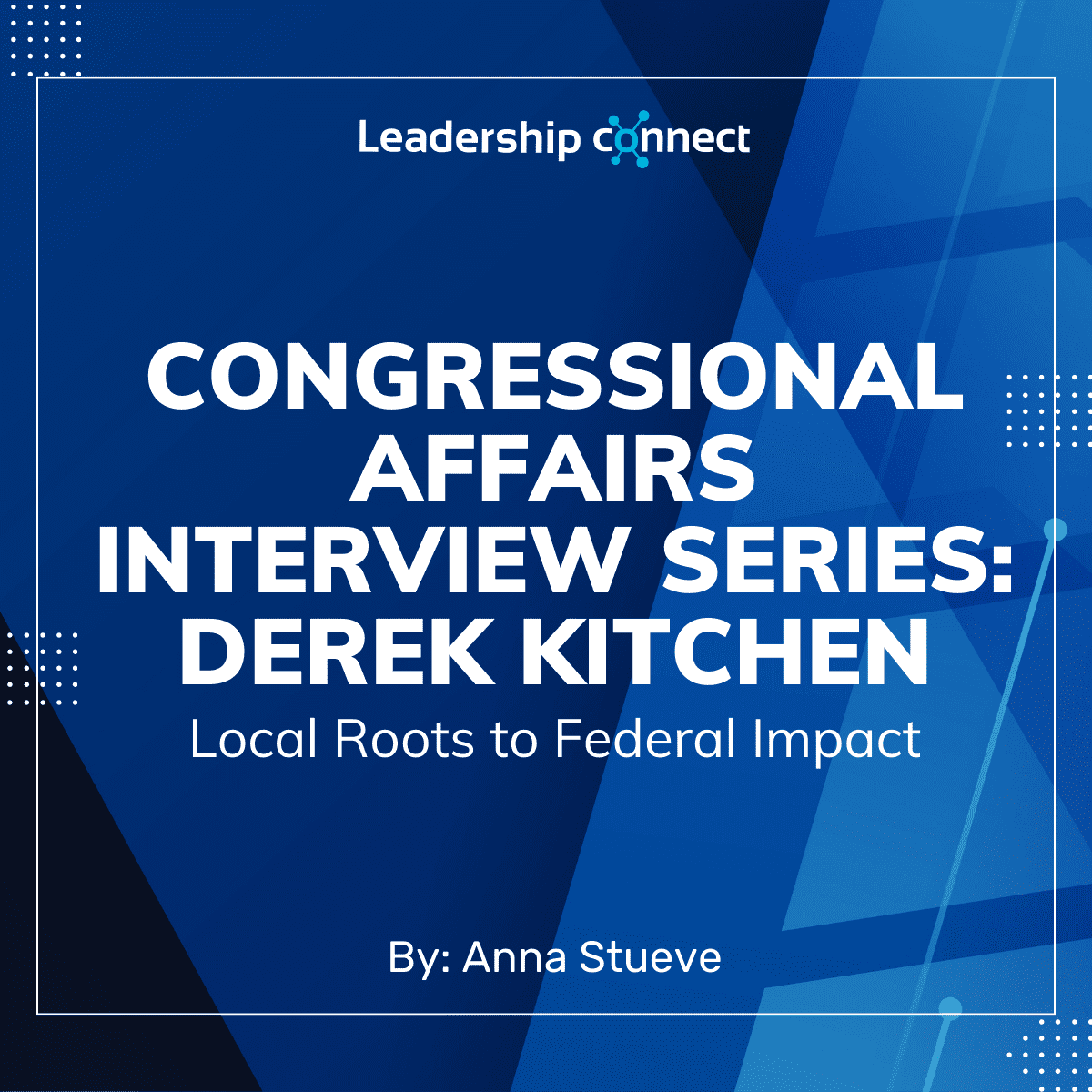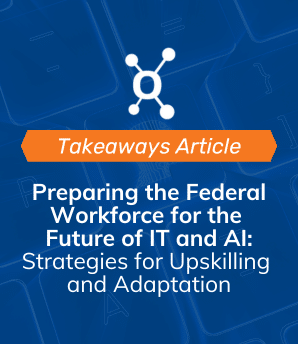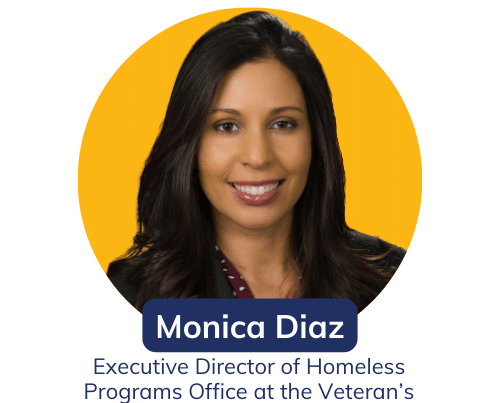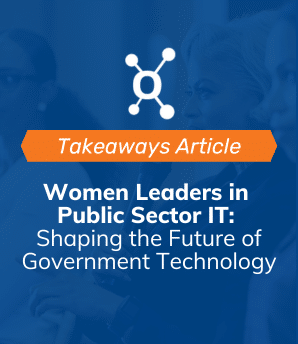In the intricate landscape of federal agencies, one often overlooked yet vital player is the Export-Import Bank of the United States (EXIM). In an exclusive interview with Derek Kitchen, Vice President of the Office of Congressional and Intergovernmental Affairs (OCIA) at EXIM, we delve into the agency’s rich history and impactful role in supporting American businesses on the global stage. Despite its niche status, EXIM’s legacy spans nearly a century, tracing back to its inception by President Franklin D. Roosevelt. With a mission centered on facilitating exports and bolstering the nation’s economic interests, EXIM has played a pivotal role in financing monumental infrastructure projects worldwide, showcasing American ingenuity and prowess. As Derek Kitchen illuminates, EXIM’s authority in lending, backed by congressional authorization of up to $135 billion, underscores its significance as a key enabler of American business growth and global competitiveness, despite its modest size of fewer than 400 personnel.
Can you tell me about your career path that has led you to where you are now?
I joined the agency about 10 months ago. I am a Presidential Appointee, so President Biden appointed me to this position – I’m only one of nine in EXIM. Our job is to execute on the President’s vision for the agency and the broader missions of the President. We have a number of programs, but the biggest mission for us is to help American companies compete on the global stage. I love the work, I truly do. I moved to Washington, DC to accept this job from Salt Lake City, Utah. I was born and raised in Salt Lake City, and most recently I was elected as a Utah state Senator. I am a democrat, so I was one of only 6 democrats in that legislative body and I loved serving, but these sorts of roles run their course. I was in an elected office in Utah for 8 years.
I got my start in politics and government in 2013, just out of college. I was 23 years old. I was partnered up and wanted to get married, but back then gay marriage was illegal. My partner and I, we sued the State of Utah in federal court claiming that Utah’s ban on same-sex marriage violated our constitutional rights and we ended up winning. It made Utah the first state in the country to legalize same-sex marriage through the federal courts. Now you had Massachusetts, and a few do it through their state legislatures, but my case was the first time a federal judge ruled same-sex marriage was a constitutionally protected right. You can look up the case, it’s Kitchen v. Herbert. That fundamentally changed the trajectory of same-sex marriage rights in the United States. When it was all said and done, my case legalized same-sex marriage not only for Utah, but for the entire 10th-circuit. It created that case law that allowed other cases to cite my lawsuit as precedent and build the case for the Supreme Court. My case legalized same-sex marriage in 2014, and 2 years later after the case started the Supreme Court ruled it was a national right in 2015. I’m proud to have been a part of that in a really monumental time and have my name in the history books in that capacity. During that case, which went on for about 18 months I was thrust into the spotlight as the lead plaintiff and very quickly had to become articulate on the matter, learn as much as possible and the legal issues. I was on the Rachel Maddow Show, Democracy Now called me, I was all over the media so to speak. It taught me one person can make a big difference in public life. Legalizing same-sex marriage benefited me, but what was special was that people I will never have the chance to meet benefited from that action. It kind of lit a fire in me for public service; to put my time, my resources, my energy into public service.
So, when the case was all over, I launched my campaign for City Council and became the youngest person on the City Council in Salt Lake City. Salt Lake City in a very red state, in Utah, it was incredible to not only be the first state to legalize gay marriage, but then suddenly you have a young gay kid not only winning in the federal courts but joining city council as an elected official. I served a term and focused on some of my personal priorities: affordable housing, homelessness continues to be a big issue urban areas are facing, mental/behavioral healthcare, a lot of things related to quality of life. Then in 2019, there was a vacancy in the Utah state Senate and no LGBTQ person in the Utah legislature. I received a lot of encouragement from the Chamber of Commerce and other business groups, organizers, and labor unions, they encouraged me to throw my hat in the ring. Right after I turned 30 years old, I was elected to the Utah Senate. Then in 2023, last year, the President’s team reached out and said they loved what I had been able to do, thanked me for my service, and said they’d love to have my energy and talents in the administration. So I packed my bags and moved to Washington, DC. I’ve been at EXIM, and it’s been the perfect nexus between business, global trade, diplomacy, economic diplomacy and especially after COVID it’s so interesting to be plugged into the global economy. I just feel so fortunate that I get to do this work. I love politics, I love government and I’ve always loved history.
Which specific policy area or legislative issues are you most passionate about, and how do you stay informed and engaged in those areas?
I come from a pretty blue-collar family, so issues that affect working families are really key. Like I said: affordable housing, access to transportation, access to good jobs. Allowing people to plug into the economy in a meaningful way that allows them to not only pay for their rent, buy groceries and put their kids through school and day care, but maybe even put a little money away. For me it’s all about the bread-and-butter issues, but that’s on a personal level. Now, as a member of Administration, one thing that I personally love at a high-level policy matter, I really really appreciate the opportunity to help American businesses both small, medium, and large, compete in the global marketplace. For me it’s all about providing access to financing and tools to make sure that American products are competitive. For example, if Ethiopia wants to buy 40 airplanes, I help to make sure it’s Boeing out of South Carolina and not Airbus out of France. For me it’s an opportunity to allow businesses in the United States to step up and be more competitive. That’s something I really enjoy participating in within the Biden Administration.
What do you believe sets the federal government apart as a unique work environment, and how do you navigate its challenges in your everyday work?
Well, the Federal Government is so large. We have a lot of people that run the operation, and sometimes it’s difficult to get things done just because there’s a lot of important stakeholders that need to have their buy in on a major decision. Decisions within the federal government impact everyone throughout the United States, so being mindful of how decisions are made and what the unintended consequences might be. I think that’s really important. At the same time, if we want to make quick moves and meaningfully impact decisions, one thing I’ve learned to navigate that is you have to speak early and often with your counterparts. Not only with your own agency, but intergovernmentally. Engage with the Department of State, and Treasury, Commerce, and of course the Legislative Branch. Make sure that the House and the Senate are all engaged in both minority and majority parties, not only policy but appropriations because you can’t do anything without money, right? For me, it’s trying to ensure that all stakeholders feel like they’ve had the opportunity to leave their mark on an issue so they have a sense of ownership and so we don’t miss anything along the way.
Describe a challenging or rewarding project that significantly influenced your growth as a professional. How did you handle the challenge, and what did you learn from the experience?
I think a big part of the work I’m currently doing is trying to get money in the hands of businesses that need support. Sometimes it’s harder than you might expect. There are a lot of really important rules to follow and a lot of stakeholders that need to be brought in for something to be successful. If you don’t bring in your stakeholders, there’s too many opportunities for people to step in and prevent it from happening. I have a couple examples in the back of mind that are a little more proprietary or secret in some sense so I don’t want to divulge information that is compromising, but what I would say is by and large, getting things done takes time. It’s important to be patient, striking a balance between being patient and persistent enough to not let anything fall through the cracks. Getting stakeholder buy in, inter-agency partners involved to ensure all the questions are asked and answered.
What I will say on a more local level when I was on the City Council, year over year former elected officials in the role had appropriated money in the annual budget that hadn’t been used. It was reserved year over year over year and what I found is that starting from scratch, which goes against conventional wisdom in government, allows you to reimagine your approach. We ended up finding three dozen pots of money within the city budget that totaled $30 million, and we were able to repackage that and put it into affordable housing. A big lesson for me there is you don’t have to know everything, but it’s really important to be creative even in government. You can go further a lot faster when you think outside of the box. Government is designed to go slow so walking that fine line of being creative and a little disruptive but also following all the rules and making sure all your key stakeholders are brought in along the way.
What has made you successful in your role and what advice would you give to individuals who aspire to work in the Federal Government?
If you’re a student, definitely join a pathways program, get an internship, and be super open-minded about which agency you land in. If you’re a policy person who studied international affairs, you imagine going into the State Department for example, well State Department is great but there are other opportunities that expose you to international affairs. The Commerce Department, you know, they have a whole division on trade and you get to exercise international affairs knowledge, economic diplomacy and business development. Jump in feet first and challenge yourself enough to take on a role that may not be conventional because you’ll learn from people around you. In the same vein, find mentors. There are people out there that want to help you, but you have to ask for support. You must be eager and willing to put yourself in front of people which can be a little uncomfortable to insert yourself, but you have to do it if you want to advance. There’s an enormous need in the Federal Government for talent; smart people who are passionate and want to have an impact on the world, but we need people that have a little internal motivation as well. So jump in, be open minded about where you might land, and seek mentorship.
Word Association, what is the first word that comes to mind for each of there?
- Policy – Impact
- Networking – Connections
- Writing skills – Important
- Federal Government – Big
- Leadership Connect – Accessible






